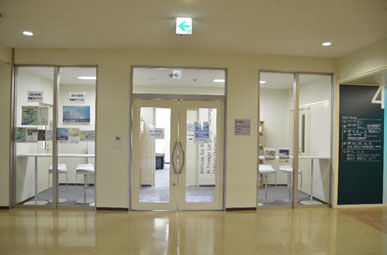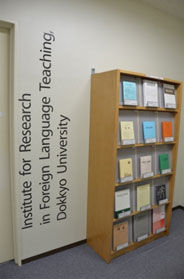Research Institute of Foreign Language Teaching
Institute for Research in Foreign Language Teaching at Dokkyo University
As the world becomes more globalized and changes dramatically in the 21st century, the ability to speak and use foreign languages is becoming increasingly important and complex. This is why the purpose, content, and methods of foreign language education must be examined from various angles.
In 2001, the Council of Europe issued the Common European Framework of Reference for Languages as a comprehensive set of guidelines for language education in Europe. It positions foreign language education as lifelong "human education" and comprehensively describes the "what," "why," and "how" that foreign languages should convey for cross-cultural understanding and advanced communication in a diverse society. Thus, it is the need of the age to create a theoretical foundation for foreign language education based on the latest research results in instructional media and linguistics.
To respond to this demand, the Institute for Research in Foreign Language Teaching considers it important to establish a new framework for foreign language education as the core of Dokkyo University, which can address "human development" in the 21st century.
The areas of study include basic research on foreign language skills and their use, development of teaching materials, evaluation, instruction, use of various media, computer-assisted education, cultural literacy, and language portfolios, as well as the interface between professional education and foreign language education in the context of a multilingual society, not to mention the field of primary and secondary education and collaboration with research centers in Japan and abroad.
From these perspectives, the Institute for Research in Foreign Language Teaching is expected to take a strong initiative toward the further evolution of "Dokkyo for Languages". It is hoped that the Institute will become a center for comprehensive foreign language education, including German, English, French, Spanish, Chinese, Korean, and other languages, as well as Japanese as a second language, without being biased toward a single language.
Since its establishment in 2011, the Institute has been focusing on the two themes of "multilingualism" and "high school-university cooperation" as the pillars of its research. In addition to regular meetings by its researchers, the institute regularly holds public lectures, open research meetings, symposia, and meetings with high school foreign language teachers. The institute also publishes a research journal and business report annually to disseminate the results of its research activities to the public.



